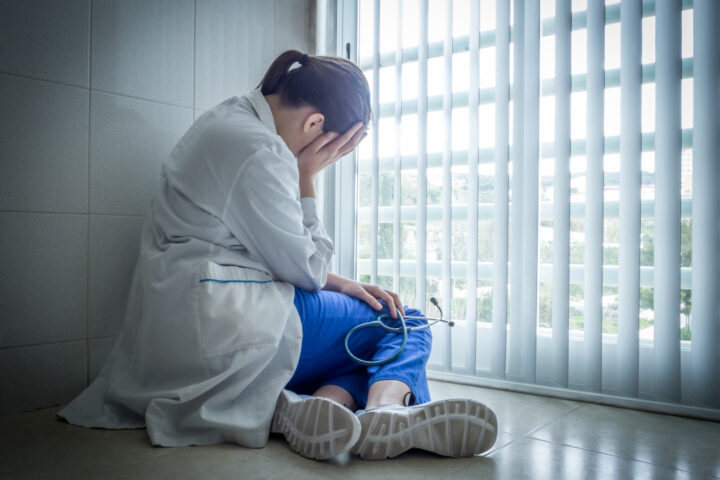At the height of COVID-19 pandemic, a nurse posted a video of them dancing inside an empty emergency room with a big bold text caption complaining their work isn’t valued. That video went viral and although there were multiple and vastly diverse interpretations, the video posting didn’t go well with the health care organization’s (HCO) leadership and resulted to tumultuous reorganization within.
One HCO leader complained in one conference that their “younger” HC provider seemingly had a different work ethic, behaviour, loyalty and respect for older peers. She continued that the government should mandate that the diaspora of healthcare workers be stopped immediately as our healthcare system is collapsing because of worker shortages.
T1: Is there a generational gap in the healthcare workforce?
The Gap.
There’s no denying that the workforce now mostly consist of the younger generation of healthcare workers- the millennials. These young healthcare workers are adept at digital technology and would rather work and interact with their peers collaboratively. Contrast that with the existing HCO leadership and structure. Most HCO leaders are Baby Boomers whos used to running a top down, highly structured, regulated and bureaucratic organization. The above mentioned stories exemplifies the “clash” happening if this “gap” isn’t bridged. A gap that is making the shortage in our healthcare workforce- nurses in particular, worse.
There are myriad of reasons for the continued shrinking of our healthcare workforce. Generational gap though rather correlational than a direct cause, is just one of these factors. The COVID-19 pandemic highlighted the gap even more, pressuring the already volatile and complex healthcare system, widening the generational misunderstanding between HCO’s workforce and its leaders. In the words of one famous motivational keynote speaker, this shift or gap is a “cycle”. The shift is the same as what other older generation experience during their time, when they were rebelling with their predecessor generation. Understanding this shift is key to solving this gap and communication may be the only doable course of action for now.
T2: What is the role of social media in bridging this healthcare workforce generational gap?
Health Is Social.
I wasn’t surprised when our HR reported one of the more effective hiring platform we have right now is social media. Even the previously held “word of mouth” campaigns are now spread on social media. Initial hiring activities and engagements takes place on social media. Most healthcare workers keep tabs of the various HCOs social media pages as a way to scout for potential opportunities.
The first story above highlights another generational difference often misconstrued by older generations- the young workers need for constant recognition and multiple technologies. Older HCO leaders may take this as counterproductive to work and are often suppressed in the workplace as a bad work ethic or behavior. Many HCO leaders neglect that part that the new generation needs constant feedback and communication and will be valuable assets if their team effort are reinforced and recognized.
Internally, many millennials prefer to work in a flat organization, engaging in a more collaborative approach rather than a strictly structured system our healthcare system is built. The young healthcare leaders build networks and interact with thru social media. As many HCO leaders now knew, most “unofficial” work related discussions are happening over social media. And we’d rather look at this as a problem rather than an opportunity to engage.
T3: What social media strategy will you recommend in bridging this healthcare generational gap?
Strategy for an opportunity.
Personally, social media role in bridging this gap is to connect or engage the seemingly different generations. Thus, socmed strategy primarily deals with this objective. I knew one baby boomer HCO leader say sorry to a millenial HCW via messenger, initiated a face to face meeting with the team, listened to their concerns and proactively set up a group page within the hospital socmed platform to work collaboratively and find solution to these concerns. Another multinational HCO hired an external social media manager, integrated it into its HR HCW engagement team and increase the younger generation participation in hospital patient and employees initiatives. An even more proactive baby boomer HCO leader trained himself social media tactics and used the various platform to connect and provide feedback to his peers.
Taking on social media as a tool does have it setbacks though. In healthcare, patient information privacy should be protected. While many social media platforms are free, a deliberate attempt to harness its power needs some serious investments both in human capital and finances.
The role of socmed in bridging generational gap now is even clearer than before. The COVID-19 pandemic highlighted this and will weigh considerably even in a post pandemic healthcare. Taking advantage of this opportunity will be the topic of this Saturday’s #HealthXPH tweetchat 9PM Manila time. Join us by live tweeting your answers to these guide questions and appending “#HealthXPh” to your tweets.
- T1. Is there a generational gap in the healthcare?
- T2. What is the role of social media in bridging this healthcare generational gap?
- T3. What social media strategy will you recommend in bridging this healthcare generational gap?
See you all at the #HealthXPh chat!
Image by Drazen Zigic on Freepik






